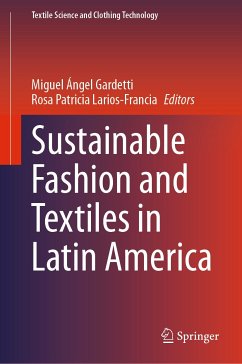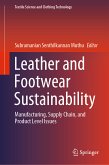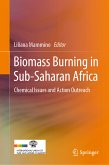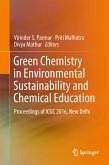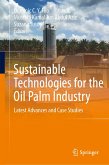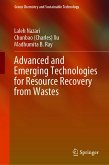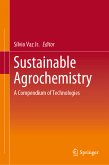Sustainable Fashion and Textiles in Latin America (eBook, PDF)
Redaktion: Gardetti, Miguel Ángel; Larios-Francia, Rosa Patricia
73,95 €
73,95 €
inkl. MwSt.
Sofort per Download lieferbar

37 °P sammeln
73,95 €
Als Download kaufen

73,95 €
inkl. MwSt.
Sofort per Download lieferbar

37 °P sammeln
Jetzt verschenken
Alle Infos zum eBook verschenken
73,95 €
inkl. MwSt.
Sofort per Download lieferbar
Alle Infos zum eBook verschenken

37 °P sammeln
Sustainable Fashion and Textiles in Latin America (eBook, PDF)
Redaktion: Gardetti, Miguel Ángel; Larios-Francia, Rosa Patricia
- Format: PDF
- Merkliste
- Auf die Merkliste
- Bewerten Bewerten
- Teilen
- Produkt teilen
- Produkterinnerung
- Produkterinnerung

Bitte loggen Sie sich zunächst in Ihr Kundenkonto ein oder registrieren Sie sich bei
bücher.de, um das eBook-Abo tolino select nutzen zu können.
Hier können Sie sich einloggen
Hier können Sie sich einloggen
Sie sind bereits eingeloggt. Klicken Sie auf 2. tolino select Abo, um fortzufahren.

Bitte loggen Sie sich zunächst in Ihr Kundenkonto ein oder registrieren Sie sich bei bücher.de, um das eBook-Abo tolino select nutzen zu können.
This book highlights the sustainable aspects of fashion and textiles in Latin America and discusses how the manufacturing and consumption of textile products and fashion are significant sources of environmental damage. It addresses important issues of water and energy consumption in the textile and fashion industry and using case studies presents how social responsibilities in consumer behavior can help in minimizing these environmental issues for a better future.
- Geräte: PC
- ohne Kopierschutz
- eBook Hilfe
- Größe: 8.29MB
Andere Kunden interessierten sich auch für
![Leather and Footwear Sustainability (eBook, PDF) Leather and Footwear Sustainability (eBook, PDF)]() Leather and Footwear Sustainability (eBook, PDF)69,95 €
Leather and Footwear Sustainability (eBook, PDF)69,95 €![Biomass Burning in Sub-Saharan Africa (eBook, PDF) Biomass Burning in Sub-Saharan Africa (eBook, PDF)]() Biomass Burning in Sub-Saharan Africa (eBook, PDF)73,95 €
Biomass Burning in Sub-Saharan Africa (eBook, PDF)73,95 €![Green Chemistry in Environmental Sustainability and Chemical Education (eBook, PDF) Green Chemistry in Environmental Sustainability and Chemical Education (eBook, PDF)]() Green Chemistry in Environmental Sustainability and Chemical Education (eBook, PDF)73,95 €
Green Chemistry in Environmental Sustainability and Chemical Education (eBook, PDF)73,95 €![Enzymes in Textile Processing: A Climate Changes Mitigation Approach (eBook, PDF) Enzymes in Textile Processing: A Climate Changes Mitigation Approach (eBook, PDF)]() Enzymes in Textile Processing: A Climate Changes Mitigation Approach (eBook, PDF)137,95 €
Enzymes in Textile Processing: A Climate Changes Mitigation Approach (eBook, PDF)137,95 €![Sustainable Technologies for the Oil Palm Industry (eBook, PDF) Sustainable Technologies for the Oil Palm Industry (eBook, PDF)]() Sustainable Technologies for the Oil Palm Industry (eBook, PDF)113,95 €
Sustainable Technologies for the Oil Palm Industry (eBook, PDF)113,95 €![Advanced and Emerging Technologies for Resource Recovery from Wastes (eBook, PDF) Advanced and Emerging Technologies for Resource Recovery from Wastes (eBook, PDF)]() Laleh NazariAdvanced and Emerging Technologies for Resource Recovery from Wastes (eBook, PDF)121,95 €
Laleh NazariAdvanced and Emerging Technologies for Resource Recovery from Wastes (eBook, PDF)121,95 €![Sustainable Agrochemistry (eBook, PDF) Sustainable Agrochemistry (eBook, PDF)]() Sustainable Agrochemistry (eBook, PDF)69,95 €
Sustainable Agrochemistry (eBook, PDF)69,95 €-
-
-
This book highlights the sustainable aspects of fashion and textiles in Latin America and discusses how the manufacturing and consumption of textile products and fashion are significant sources of environmental damage. It addresses important issues of water and energy consumption in the textile and fashion industry and using case studies presents how social responsibilities in consumer behavior can help in minimizing these environmental issues for a better future.
Dieser Download kann aus rechtlichen Gründen nur mit Rechnungsadresse in A, B, BG, CY, CZ, D, DK, EW, E, FIN, F, GR, HR, H, IRL, I, LT, L, LR, M, NL, PL, P, R, S, SLO, SK ausgeliefert werden.
Produktdetails
- Produktdetails
- Verlag: Springer Nature Singapore
- Seitenzahl: 364
- Erscheinungstermin: 29. Juli 2021
- Englisch
- ISBN-13: 9789811618505
- Artikelnr.: 62340195
- Verlag: Springer Nature Singapore
- Seitenzahl: 364
- Erscheinungstermin: 29. Juli 2021
- Englisch
- ISBN-13: 9789811618505
- Artikelnr.: 62340195
- Herstellerkennzeichnung Die Herstellerinformationen sind derzeit nicht verfügbar.
Miguel Angel Gardetti (Ph.D.), founded the Centre for Study of Sustainable Luxury, first initiative of its kind in the world with an academic/research profile. He is also the founder and director of the "Award for Sustainable Luxury in Latin America". For his contributions in this field, he was granted the "Sustainable Leadership Award (academic category)," in February, 2015 in Mumbai (India). He is an active member of the Global Compact in Argentina -which is a United Nations initiative-, and was a member of its governance body -the Board of The Global Compact, Argentine Chapter - for two terms. He was also part of the task force that developed the "Management Responsible Education Principles" of the United Nations Global Compact. This task force was made up of over 55 renowned academics worldwide pertaining to top Business Schools. Rosa Patricia Larios-Francia, PhD Candidate in Strategic Management with mention in Business Management andSustainability, by the Consortium of Universities of Peru. Master's Degree in Industrial Engineering, Industrial Engineer, with a specialization diploma in Innovation Management. Research directed to the management of the MSME Sector, Sustainability, textile sector, Cluster and Innovation, Humanitarian Logistics. Founder and director of the Center for Textile Studies and Innovation at the University of Lima. Researcher and University Professor in the career of Industrial Engineering, more than 20 years of experience in the textile and apparel sector; member of the Technical Committees of the National Quality Institute (INACAL): Management and Quality Assurance; Management of research, technological development and Innovation, Management of MSMEs and Textile and Apparel. Member of the Sustainable Fashion Cluster.
Socioeconomic and Environmental Aspects of the Production of Silk Cocoons in the Brazilian Sericulture.- Adapting Sustainable Dsign Assessment tools for Local Development. Some insights over Argentina's Clothing Industry.- Nongovernmental Organization Support for Sustainable Artisan Business.- Flax Fibre Extraction to Textiles and Sustainability: A Holistic Approach.- Strategic Design for Social Innovation in the Fashion System: the Sustainable Fashion Ecosystem Case.- Sustainable Latin America Aesthetic.- Public Policy and Legislation in Sustainable Fashion.- Incorporating Consumer Perspective into the Value Creation Process in the Fashion Industry: A path to circularity.- Cultural perspectives for Fashion Sustainability: Learning from Brazil.- Brazilian Organic Cotton Network: sustainable driver for the textile and clothing sector.- Sustainable fashion.- Upcycling as a tool for Participatory Critical Reflection.
Socioeconomic and Environmental Aspects of the Production of Silk Cocoons in the Brazilian Sericulture.- Adapting Sustainable Dsign Assessment tools for Local Development. Some insights over Argentina's Clothing Industry.- Nongovernmental Organization Support for Sustainable Artisan Business.- Flax Fibre Extraction to Textiles and Sustainability: A Holistic Approach.- Strategic Design for Social Innovation in the Fashion System: the Sustainable Fashion Ecosystem Case.- Sustainable Latin America Aesthetic.- Public Policy and Legislation in Sustainable Fashion.- Incorporating Consumer Perspective into the Value Creation Process in the Fashion Industry: A path to circularity.- Cultural perspectives for Fashion Sustainability: Learning from Brazil.- Brazilian Organic Cotton Network: sustainable driver for the textile and clothing sector.- Sustainable fashion.- Upcycling as a tool for Participatory Critical Reflection.
